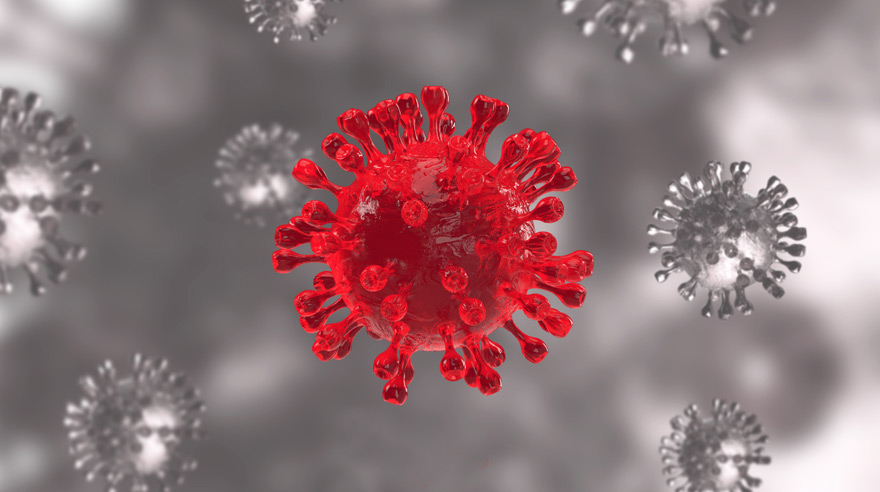Omicron: What We Know About the New COVID Variant
Omicron is the newest variant of SARS-coV-2. It first appeared in South Africa but has now spread to 29 U.S. states. Photo from NPR.
January 26, 2022
Omicron, the newest COVID variant emerged on November 24, 2021, in South Africa. On November 26, 2021, Omicron was officially declared a variant by WHO. It is the variant following Delta, which emerged in July 2021. As of early December, Omicron has already spread to 50 countries and 29 U.S. states. As this new variant arises, scientists are quickly trying to learn all they can.
The COVID-19 pandemic has been sweeping the world for the past year and a half. With almost 270 million cases and 5.3 million deaths, COVID has taken a toll on the world. Just when we thought we understood the new disease and were returning to normalcy, a more contagious and powerful variant arose.
Omicron is the newest of COVID variants. It was first found in South Africa on November 24, 2021. It is another variant of COVID-19 following the Delta variant. As this variant is new, many people have concerns and questions. Based on a survey, the majority of people are very unknowledgeable on the Omicron variant. It is important that proper research and media coverage is done to ensure we can stop the spread of new variants, as well as being knowledgeable about the disease. It is important for the average person to be educated so that the symptoms are noticed, and the proper precautions are taken. According to the CDC (Centers for Disease Control and Prevention), “scientists have already begun many experiments to help learn all they can about Omicron.” Genetic surveillance is being used to track COVID variants. Genetic mutations to SARS-coV-2 are what cause new variants.
Another concern with the emergence of Omicron is what precautions will be taken. Currently, travel to South Africa, where Omicron originated and is the most preeminent, has been shut down. According to a poll, most people did not have a change of opinion after learning about Omicron and did not think new precautions should be added; even though research done by the CDC has found Omicron is more contagious than COVID-19 or the Delta variant.
Similar to the Delta variant, the preexisting vaccines are believed to help prevent against hospitalization and death. Although fully vaccinated people can still get Omicron. The CDC recommends people aged 18 and over get a booster shot six months after their last Pfizer or Moderna shot or two months after their Johnson and Johnson vaccine.
Sources:
https://www.cdc.gov/coronavirus/2019-ncov/variants/omicron-variant.html
https://www.cnbc.com/2021/12/08/omicron-symptoms-cases-and-vaccine-evasion-what-we-know-now.html
*Note: Information and guidelines have changed since the writing of this article (12/17/21). Please visit https://www.cdc.gov/ for the most recent information on the Omicron variant, as well as any updated COVID-19 guidelines and protocol.










